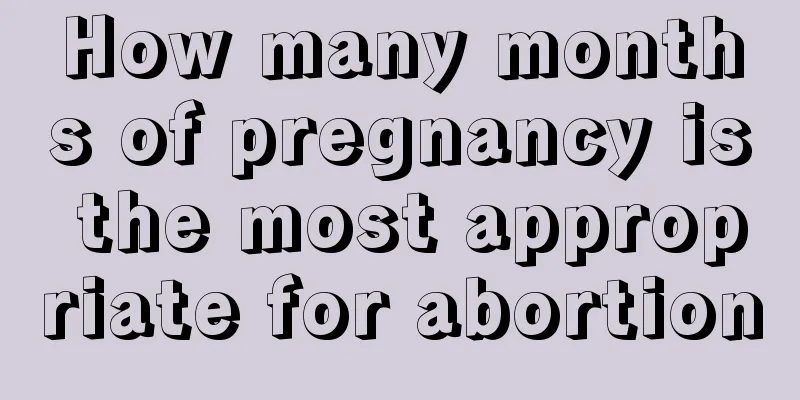What to do if a pregnant woman has a high risk of Down syndrome screening

|
After a woman becomes pregnant, she may need to undergo Down syndrome screening. Sometimes, the results of the Down syndrome screening are found to be high risk. Pregnant women may feel panicked at this time, but this is actually unnecessary. High risk just means that there is a risk, and it does not mean that the child born will definitely be a Down syndrome baby. Down syndrome screening is usually done through amniotic fluid cells, which is an amniocentesis test. There are many cases where a fetus has a high-risk result but is not actually ill, because among all high-risk results, only 1/50 to 1/70 of the fetuses are actually ill. Down syndrome screening mainly measures the AFP value, HCG value and other non-specific biochemical indicators in the pregnant woman's blood, and then compares them with the average of normal pregnant women during the same period. Combined with age, weight and other information, after probability analysis, it is determined what the probability of each fetus suffering from Down syndrome is. This is not a diagnostic method. Therefore, a positive screening result strictly means a high-risk screening result, and a positive prenatal diagnosis means a real illness. According to industry standards for prenatal screening, approximately 5 out of every 100 pregnant women will receive high-risk screening results. Therefore, a positive screening result only narrows the scope of fetuses that may have Down syndrome in the population and reduces the scope of those who need amniocentesis for confirmatory examination. At the same time, a negative screening result strictly means a low-risk screening result, which means that the possibility of the fetus suffering from Down syndrome is low, and no further confirmatory examination is needed for the time being. However, from the perspective of fetal medicine, it is still recommended that pregnant women undergo a detailed ultrasound examination at 20-26 weeks to rule out fetal malformations. It should be noted that a fetus that is screened at high risk for Down syndrome is not at high risk of developing Down syndrome after birth, so pregnant women should not worry too much about the results of this test. It is best to go to the hospital to seek advice from a professional doctor. In fact, the incidence rate of Down syndrome is about one in seven hundred, and the probability of occurrence is relatively small. |
<<: What should pregnant women do if they get angry every day?
>>: What to do if the fetus is in an abnormal position at 24 weeks of pregnancy
Recommend
Why did the price of mutton rise in 2019? The reason why the price of mutton rose in the second half of this year
The overall price of meat this year is on a rapid...
Is nausea normal during 4 months of pregnancy?
Every woman's reaction during pregnancy is th...
There is a hard lump on the edge of the breast that hurts
The breast is an important part of the female bod...
How should women maintain their ovaries?
The ovaries are the most important organs in a wo...
No yolk sac seen in early pregnancy
After confirming pregnancy, in order to ensure no...
How to make the snail rice noodle delicious when you cook it yourself? How to make the snail rice noodle not smell bad?
Snail rice noodle has a stinky taste and is one o...
Is it true that you can’t get pregnant if you have uterine fibroids?
Xiao Chen is a successful white-collar beauty. Sh...
A woman with a fleshy nose
We know that a girl's appearance is very impo...
What are the side effects of steaming breasts with salt water?
People have used salt water to wash various thing...
How many months of pregnancy does it appear on the face
The phenomenon of developing spots after pregnanc...
What are the symptoms of progesterone deficiency?
Nowadays, more and more women are suffering from ...
Eight foods to lower blood sugar in pregnant women
As the saying goes, prevention is better than cur...
What can I eat to relieve menstrual pain?
Many female friends are afraid of having abdomina...
What should girls who are short and have thick legs wear to look good?
For short girls, the possibility of growing talle...
Is it okay for women to eat mints every day?
Mint candy is a kind of candy made from mint as t...









